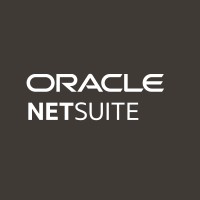Best ERP (Enterprise Resource Planning)
What is ERP (Enterprise Resource Planning)?
Enterprise Resource Planning (ERP) systems are comprehensive software solutions designed to streamline and integrate core business processes across various departments within an organization. These systems unify areas such as finance, human resources, supply chain, manufacturing, and customer relationship management, providing a centralized platform for data management and operational efficiency. By offering real-time insights, ERP software helps businesses make informed decisions, optimize workflows, and improve productivity.
Modern ERP solutions often include cloud-based capabilities, scalability, and customization options to meet the needs of organizations of all sizes and industries. Whether you're looking to improve resource allocation or enhance collaboration, ERP systems are a vital tool for achieving seamless business operations.
20 Listings in ERP (Enterprise Resource Planning)
More About ERP (Enterprise Resource Planning)
Enterprise Resource Planning (ERP) is a pivotal category in the world of business software, encompassing comprehensive solutions designed to manage and streamline an organization’s core operations. ERP systems serve as a unified platform that integrates various functions such as finance, human resources, procurement, inventory management, production, supply chain, and customer relationship management. By consolidating these processes into a single cohesive system, ERP software enhances operational efficiency, fosters collaboration, and supports informed decision-making across the organization.
At the heart of ERP is the concept of integration. Traditional business systems often operate in silos, where departments use separate tools and databases, leading to inefficiencies, miscommunication, and data inaccuracies. ERP bridges these gaps by creating a centralized database that ensures all departments work with consistent, real-time information. For example, when a sale is made, the ERP system automatically updates inventory levels, generates an invoice, and records the transaction in the financial system without requiring manual intervention. This interconnectedness not only saves time but also reduces the risk of errors and enhances data accuracy.
ERP systems come in various forms, catering to the diverse needs of businesses. On-premises ERP solutions are installed and maintained on an organization’s local servers, offering full control over the software but requiring significant upfront investment and ongoing maintenance. Cloud-based ERP, on the other hand, is hosted on remote servers and accessed through the internet. This model provides greater flexibility, scalability, and lower initial costs, making it particularly appealing to small and medium-sized enterprises (SMEs). Additionally, hybrid ERP solutions combine elements of both on-premises and cloud systems, offering a tailored approach for organizations with unique requirements.
One of the key benefits of ERP systems is their ability to improve operational efficiency. By automating repetitive tasks and standardizing processes, ERP frees employees to focus on higher-value activities. For instance, in a manufacturing environment, ERP can automate production planning, monitor machine performance, and track material usage, ensuring optimal resource utilization and minimizing downtime. Similarly, in retail, ERP helps manage inventory levels, forecast demand, and streamline supply chain operations, leading to reduced costs and improved customer satisfaction.
Another significant advantage of ERP is its role in decision-making. The real-time data provided by ERP systems allows managers and executives to gain insights into every aspect of the business. Dashboards and reporting tools present key performance indicators (KPIs) and analytics in an easily digestible format, enabling leaders to identify trends, address challenges, and seize opportunities promptly. For example, an ERP system can highlight a sudden increase in production costs, prompting a review of suppliers or processes to maintain profitability.
ERP systems are also instrumental in enhancing compliance and risk management. Many industries are subject to stringent regulations and standards, such as data protection laws, financial reporting requirements, and quality assurance protocols. ERP software helps organizations adhere to these standards by maintaining accurate records, tracking compliance metrics, and automating reporting processes. Additionally, the centralized nature of ERP systems improves data security by consolidating information into a single system with robust access controls and encryption.
Customization and scalability are vital features of modern ERP solutions. Every organization has unique needs, and ERP vendors offer a range of modules and configurations to tailor the system accordingly. For instance, a manufacturing company may prioritize modules for production scheduling and inventory management, while a service-based business might focus on project management and customer relationship management. As businesses grow, ERP systems can scale to accommodate increased complexity, additional users, and new operational requirements, ensuring long-term viability.
The implementation of an ERP system, however, is not without challenges. The process often requires significant time, effort, and resources. Organizations must invest in thorough planning, stakeholder engagement, and employee training to ensure a successful rollout. Selecting the right ERP vendor is equally critical, as the software should align with the organization’s goals, budget, and industry-specific needs. Despite these hurdles, the benefits of a well-implemented ERP system far outweigh the initial complexities.
The evolution of ERP technology has introduced advanced capabilities that further enhance its value. Artificial intelligence (AI) and machine learning (ML) are increasingly integrated into ERP systems, enabling predictive analytics, intelligent automation, and personalized user experiences. For example, AI-powered ERP can forecast inventory needs based on historical data and market trends, ensuring optimal stock levels and minimizing waste. Similarly, ML algorithms can analyze financial data to identify patterns and anomalies, improving fraud detection and financial planning.
The rise of mobile ERP solutions has also transformed how businesses interact with their systems. Mobile access allows employees to perform tasks, access information, and collaborate from anywhere, enhancing productivity and responsiveness. For instance, field service technicians can update work orders, capture customer signatures, and upload photos directly from their mobile devices, streamlining service delivery and improving customer satisfaction.
Integration with other technologies is another area where ERP systems excel. Modern ERPs often include APIs (application programming interfaces) and connectors that enable seamless integration with third-party tools, such as customer relationship management (CRM) software, e-commerce platforms, and business intelligence (BI) tools. This interoperability ensures that businesses can leverage the full spectrum of their technology ecosystem while maintaining a unified operational framework.
In conclusion, ERP systems are a cornerstone of modern business operations, providing organizations with the tools they need to achieve efficiency, transparency, and scalability. From small startups to global enterprises, ERP software empowers businesses to navigate the complexities of today’s competitive landscape with confidence and agility. As technology continues to advance, ERP solutions will undoubtedly evolve, incorporating new features and capabilities that further enhance their impact on organizations worldwide.
ERP (Enterprise Resource Planning) News and Updates
- Breaking News: ERP Software Industry Update In the rapidly evolving landscape of ERP software, businesses are continuously seeking cutting-edge solutions to streamline operations and enhance productivity. The latest developments in the industry..
- The Evolution of ERP Software: What's New in 2022 The world of ERP software is constantly evolving, adapting to the changing needs and demands of businesses in today's fast-paced environment. In 2022, we are seeing several key trends and updates that..
- Innovations and Updates in ERP Software: Stay Ahead of the Curve ERP software is constantly evolving to keep up with the dynamic needs of businesses in today's fast-paced environment. Recent trends in the industry include a shift towards cloud-based ERP solutions, ..
- The Latest Innovations in ERP Software: What You Need to Know As businesses continue to rely on technology to streamline their operations, the demand for efficient and advanced ERP software solutions is on the rise. In the ever-evolving landscape of ERP software..
- The Evolution of ERP Software: New Trends and Innovations Enterprise Resource Planning (ERP) software continues to evolve rapidly, with new trends and innovations reshaping the industry. From cloud-based solutions to AI-driven capabilities, ERP software prov..
ERP (Enterprise Resource Planning) Related Categories
- Workflow Automation Workflow Automation software allows businesses to streamline their operations by automating routine ..
- CRM (Customer Relationship Management) Customer Relationship Management (CRM) software helps businesses manage their interactions with curr..
- Time Tracking Software Time tracking software helps businesses monitor and manage employee work hours, ensuring accurate pa..
- Business Intelligence Business Intelligence (BI) software allows organizations to collect, analyze, and visualize their bu..
- Reporting and Analytics Reporting and analytics software provides businesses with the tools to generate detailed reports and..
- Document Management Document management software helps businesses organize, store, and share their documents electronica..
- Accounting Software Accounting Software is a vital tool for businesses and individuals to manage their financial records..
- Resource Planning Resource Planning Software is designed to help businesses allocate and manage resources such as labo..
- Inventory Management Inventory Management Software helps retailers track inventory levels, manage stock across multiple l..








.png)
.png)

.png)
.png)
.png)

.png)

.png)
.png)
.png)


.png)
